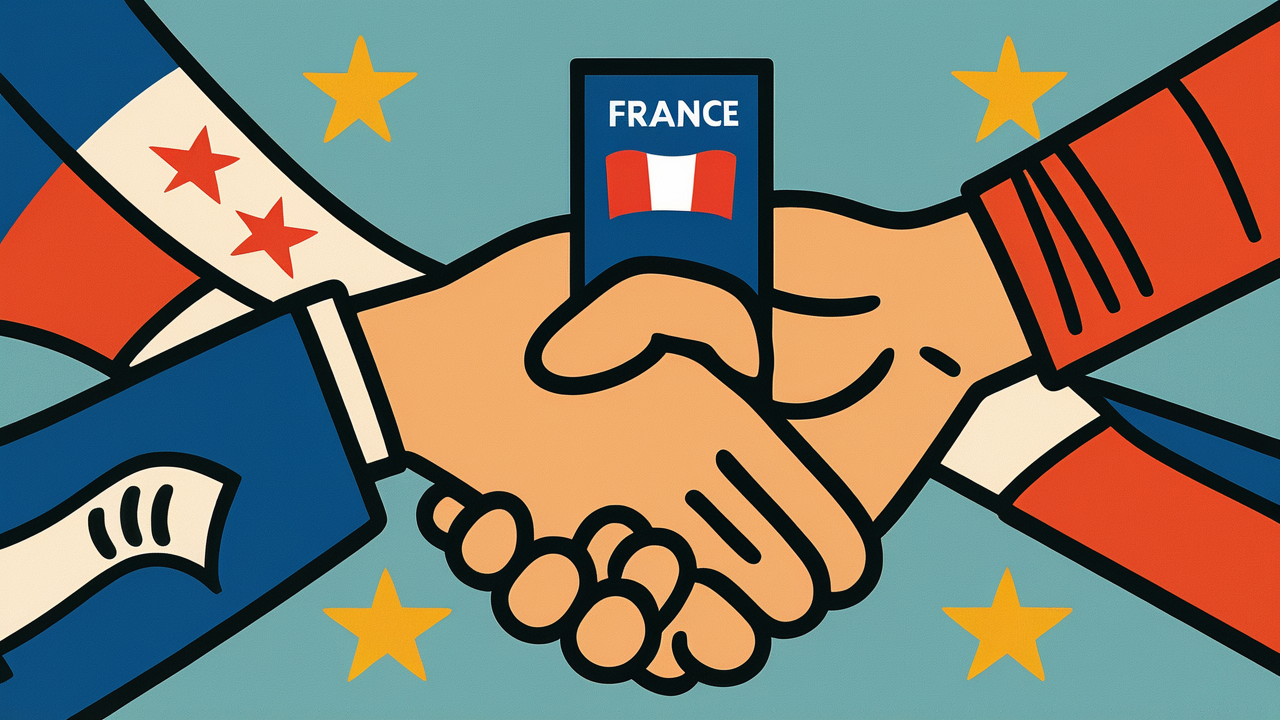[Disclaimer] This article is reconstructed based on information from external sources. Please verify the original source before referring to this content.
News Summary
The following content was published online. A translated summary is presented below. See the source for details.
A historic political agreement has been reached that formally recognizes New Caledonia as a “State” within the French Republic. This landmark decision represents a significant shift in the relationship between France and its Pacific territory, which has been seeking greater autonomy for decades. The agreement comes after years of negotiations and multiple referendums on independence. Under this new arrangement, New Caledonia will maintain its connection to France while gaining enhanced self-governance powers and official recognition as a distinct state entity within the French constitutional framework. This unique status aims to balance the aspirations of both pro-independence groups and those wishing to remain part of France, potentially serving as a model for other territories seeking similar arrangements.
Source: Global Voices
Our Commentary
Background and Context

New Caledonia is a group of islands in the Pacific Ocean, about 1,200 kilometers east of Australia. It has been a French territory since 1853, when France claimed it as a colony. Today, about 270,000 people live there, including the indigenous Kanak people and descendants of European settlers.
The journey to this historic recognition has been long and sometimes difficult. For decades, many Kanak people have wanted independence from France, while others – particularly those of European descent – preferred to remain French. This created tensions that sometimes led to violence, especially during the 1980s.
In 1998, France and New Caledonian leaders signed the Nouméa Accord, which promised gradual transfers of power and eventual votes on independence. Three referendums were held (2018, 2020, and 2021), with independence being rejected each time, though the last vote was controversial due to low turnout.
Expert Analysis
This new “State within France” status represents a creative compromise. It’s neither full independence nor the status quo – it’s something entirely new in French constitutional law. This arrangement could give New Caledonia more control over its own affairs while keeping the benefits of being connected to France, such as French citizenship, the Euro currency, and economic support.
The timing is significant. Pacific regions are becoming increasingly important geopolitically, with major powers like China and the United States expanding their influence. France wants to maintain its presence in the Pacific while respecting local desires for self-governance.
This model could influence other French territories like French Polynesia or even inspire similar arrangements in other countries with overseas territories.
Additional Data and Fact Reinforcement
New Caledonia is economically important. It contains about 25% of the world’s known nickel reserves, a metal crucial for making stainless steel and electric vehicle batteries. The territory’s economy depends heavily on nickel mining, tourism, and financial support from France.
France currently provides about 1.5 billion euros annually to New Caledonia, supporting healthcare, education, and infrastructure. Under the new arrangement, New Caledonia would likely gain more control over its natural resources while maintaining access to French development funds.
The demographic balance is delicate: roughly 40% of the population is Kanak, 27% European (mainly French), and the rest includes people from other Pacific islands and Asia. Any political solution must consider all these communities.
Related News
This development connects to broader decolonization movements worldwide. The United Nations still lists New Caledonia as a non-self-governing territory requiring decolonization. This new status might satisfy UN requirements while maintaining the France-New Caledonia relationship.
Other French territories are watching closely. French Polynesia has its own autonomy movement, and Corsica seeks greater self-governance within metropolitan France. The New Caledonian model could provide a template for these regions.
Summary

The recognition of New Caledonia as a “State” within France represents a historic compromise between independence and integration. This creative solution acknowledges the territory’s unique identity and right to self-governance while preserving beneficial ties to France. Success will depend on implementation details and whether all communities feel represented in the new arrangement. If successful, this model could revolutionize how countries manage relationships with territories seeking autonomy without full independence.
Public Reaction
Initial reactions have been mixed but cautiously optimistic. Pro-independence Kanak leaders view this as progress toward eventual sovereignty, while pro-France groups see it as preserving essential ties. Young New Caledonians particularly welcome the compromise, hoping it will bring stability and economic opportunities after years of political uncertainty.


